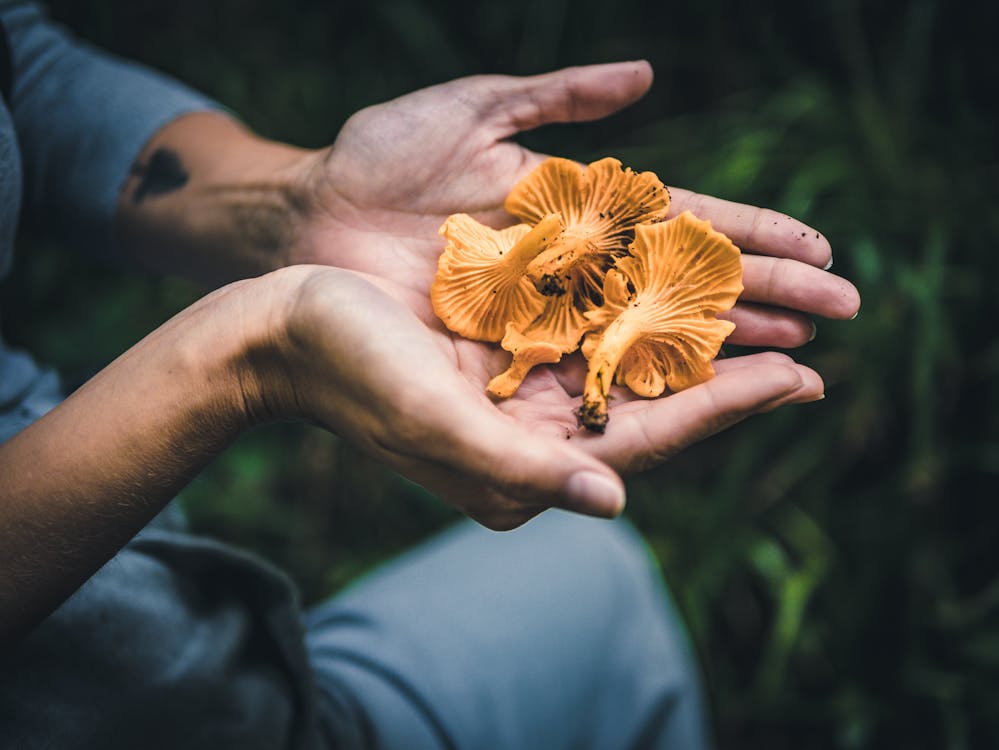
Adaptogens seem to be the topic of discussion and we are seeing their names pop up everywhere; in skincare, in supplements and in general nutrition. Many call adaptogens, Superfoods.
But why glorify them now?
Many adaptogens have been around 6,000 years - so what is driving this phenomenon?
Maybe it is just as simple as stress.
What is an Adaptogen?
It is a natural substance considered to help the body adapt to stress.
According to some, the four criteria to be considered an adaptogen:
- Must reduce harm caused by stressed states
- Positive excitatory effects on the body
- No side effects from the excitatory effects
- No harm can come from it
What do Adaptogens do in the body?
Adaptogens increase the state of non-specific resistance in stress and decrease sensitivity to stressors, which results in stress protection.
Studies on animals and isolated neuronal cells have revealed that adaptogens exhibit neuroprotective, anti-fatigue, anti-depressive and nootropic activity.
In addition, a number of clinical trials demonstrate that adaptogens exert an anti-fatigue effect that increases mental work capacity against a background of stress and fatigue, particularly in tolerance to mental exhaustion and enhanced attention.
What is Ashwagandha?
Ashwagandha is an adaptogen.
Ashwagandha, also known as Withania somnifera, have these attributes:
- Comes from the Nightshade family
- Winter cherry, Indian Ginseng, poor man’s ginseng
- Somnifera = sleep inducing (restoration)
- Grows in Africa and India
- The root smells like horse (“ashwa”), that is why it is called Ashwagandha (on consuming it gives the power of a horse).
What does ashwagandha do? Why take this adaptogen? For most of these 6000 years, ashwagandha has been used as a Rasayana (tonic). The root of ashwagandha is regarded as a tonic, aphrodisiac, narcotic, diuretic, astringent, thermogenic and stimulant. It is commonly used in emaciation of children, debility from old age, rheumatism, constipation, insomnia, nervous breakdown, goiter , etc.
The extensive studies on the biological model of animals for the adaptogenic / anti-stress properties of ashwagandha have shown it to be effective in increasing the stamina (physical endurance) and preventing stress induced gastric ulcer, mortality and more. (2)
Mechanisms of Action for Ashwagandha
A interesting study on rats tells us more on what ashwagandha does.
In this study an aqueous suspension of ashwagandha root was used at 100 mg/kg/oral dosage. Subjects (rats) were exposed to cold stress which showed a significant increase in plasma cortisol levels (cortisol is the stress hormone).
In the rats pretreated with the ashwagandha, these parameters were near control values and an increase in the swimming time was observed.
Control group = 385 minutes
Ashwagandha Group = 740 minutes
In other words, the ashwagandha was able to modulate the stress levels so that they would not rise during the cold swim. Furthermore, the rat was able to swim longer. (2)
A study on humans also provides information on what ashwagandha can do.
In this particular study, sixty male and female participants received capsules of ashwagandha extract 125 mg, ashwagandha extract 300 mg or identical placebo twice daily for eight weeks.
Stress was assessed at four weeks and eight weeks. Anxiety, cortisol levels and sleep quality were also assessed.
A significant reduction in stress levels were observed with ashwagandha at 250 mg/day and 600 mg/day. Cortisol levels reduced with both ashwagandha 250 mg/day and ashwagandha 600 mg/day. Compared to the placebo group participants, the participants receiving ashwagandha had significant improvement in sleep quality. (4)

What is known about the Adaptogen, Reshi?
What are reishi mushrooms good for? The reishi mushroom, also known as Ganoderma lucidum, have these attributes:
- Mushroom of immortality
- Ganoderma = shiny skin lucidum = bright
- Red and yellow varieties.
- Takes years to go from spore to fruiting body. Once established, it takes months to grow into this Styrofoam-like consistency.
- Grows in every forest in the world, although rare to find
- Ganoderma lucidum or reishi is recognized as the most potent adaptogen present in nature, and its anti-inflammatory, antioxidant, immunomodulatory and anticancer activities are well known.
Reishi fits the classic definition of an adaptogen. It has double-direction activity, meaning that it, as an example, improves functioning of the immune and organ systems.
It doesn’t stimulate the liver, the kidney or the overall system. Rather, it regulates them. It doesn’t stimulate or suppress the immune system—it’s called an immune-modulator.
Reishi works both for insomnia and increasing mental clarity—two seemingly opposing problems.
It’s also been found to work for both high and low blood pressure symptoms; both over-active and under-active thyroids; both overactive immunity (Lupus, Fibromyalgia and other autoimmune diseases), and weak immunity (colds, flu, and viruses)
Actions and Benefits of Reishi
A randomized, double-blind, placebo-controlled parallel study aimed to investigate the efficacy and safety of a reishi in 132 Chinese patients with neurasthenia (fatigue, irritability and headaches). Patients were randomized to receive reishi or placebo orally for 8 weeks.
In 123 assessable patients, reishi treatment for 8 weeks resulted in significantly lower (disease severity) scores and sense of fatigue.
These findings indicated that reishi was significantly superior to placebo with respect to the clinical improvement of symptoms in fatigue. (6)
Reishi and Ashwagandha Help You Adapt To Stress
Maybe this is why we are hearing more and more about adaptogens, especially reishi and ashwagandha. We all want or need less stress. You can take reishi and ashwagandha in powder supplements, capsule supplements or maybe you want to forage to pick your own!
So in summary:
Ashwagandha increases stamina, modulates cortisol levels, decreases perceived stress, anxiety and improves sleep.
Reishi reduces fatigue, improves quality of life and increases lifespan in a model organism.
Sounds like the perfect combination to lead you into a state of mindfulness.
References:
- Panossian A, Wikman G. Effects of Adaptogens on the Central Nervous System and the Molecular Mechanisms Associated with Their Stress-Protective Activity. Pharmaceuticals (Basel). 2010;3(1):188-224. Published 2010 Jan 19. doi:10.3390/ph3010188
- Singh, N., Bhalla, M., de Jager, P., & Gilca, M. (2011). An overview on ashwagandha: a Rasayana (rejuvenator) of Ayurveda. African journal of traditional, complementary, and alternative medicines : AJTCAM, 8(5 Suppl), 208–213. https://doi.org/10.4314/ajtcam.v8i5S.9
- Patak P, Willenberg HS, Bornstein SR. Vitamin C is an important cofactor for both adrenal cortex and adrenal medulla. Endocr Res. 2004 Nov;30(4):871-5. doi: 10.1081/erc-200044126. PMID
- Salve J, Pate S, Debnath K, et al. (December 25, 2019) Adaptogenic and Anxiolytic Effects of Ashwagandha Root Extract in Healthy Adults: A Double-blind, Randomized, Placebo-controlled Clinical Study. Cureus 11(12): e6466. DOI 10.7759/cureus.6466
- Abate M, Pepe G, Randino R, Pisanti S, Basilicata MG, Covelli V, Bifulco M, Cabri W, D’Ursi AM, Campiglia P, Rodriquez M. Ganoderma lucidum Ethanol Extracts Enhance Re-Epithelialization and Prevent Keratinocytes from Free-Radical Injury. Pharmaceuticals. 2020; 13(9):224. https://doi.org/10.3390/ph13090224
- Wenbo Tang 1, Yihuai Gao, Guoliang Chen, He Gao, Xihu Dai, Jinxian Ye, Eli Chan, Min Huang, Shufeng Zhou A randomized, double-blind and placebo-controlled study of a Ganoderma lucidum polysaccharide extract in neurasthenia Affiliations expandPMID: 15857210 DOI: 10.1089/jmf.2005.8.53
- Hong Zhao 1, Qingyuan Zhang, Ling Zhao, Xu Huang, Jincai Wang, Xinmei KangSpore Powder of Ganoderma lucidum Improves Cancer-Related Fatigue in Breast Cancer Patients Undergoing Endocrine Therapy: A Pilot Clinical Trial
- Ming-Hong Chuang 1, Shyh-Horng Chiou, Chun-Hao Huang, Wen-Bin Yang, Chi-Huey Wong Bioorg Med Chem. 2009 Nov 15;17(22):7831-40. doi: 10.1016/j.bmc.2009.09.002. Epub 2009 Sep 6.The lifespan-promoting effect of acetic acid and Reishi polysaccharide









Leave a comment
This site is protected by hCaptcha and the hCaptcha Privacy Policy and Terms of Service apply.